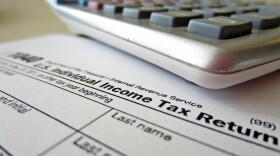This tax season the new tax code passed by President Trump and a Republican-led Congress is finally in full effect. The legislation passed in late 2017 but most changes became effective in 2018 and this filing season's refunds could act as an indicator of the tax cut Americans were promised. Most already saw that cut in less witholding—or the money taken out of their paychecks. The IRS is reporting that the average refund is more—so more money going back to taxpayers—but the number of Americans getting that refund is down. We check in: are Granite Staters getting bigger refunds? And is the new tax code easier to manage?
GUESTS:
- Bill Beauchesne, accountant at Nathan Wechsler Accountants and Business Advisors, a tax prepare that specializes in real estate, LLCs, and wealth management.
- Cary Gladstone, Senior Director of Asset Building Strategies at Granite United Way and chair of the CA$H Coalition of New Hampshire
- Jill Schlesinger, business news analyst on CBS and author of The Dumb Things Smart People Do with Their Money.








